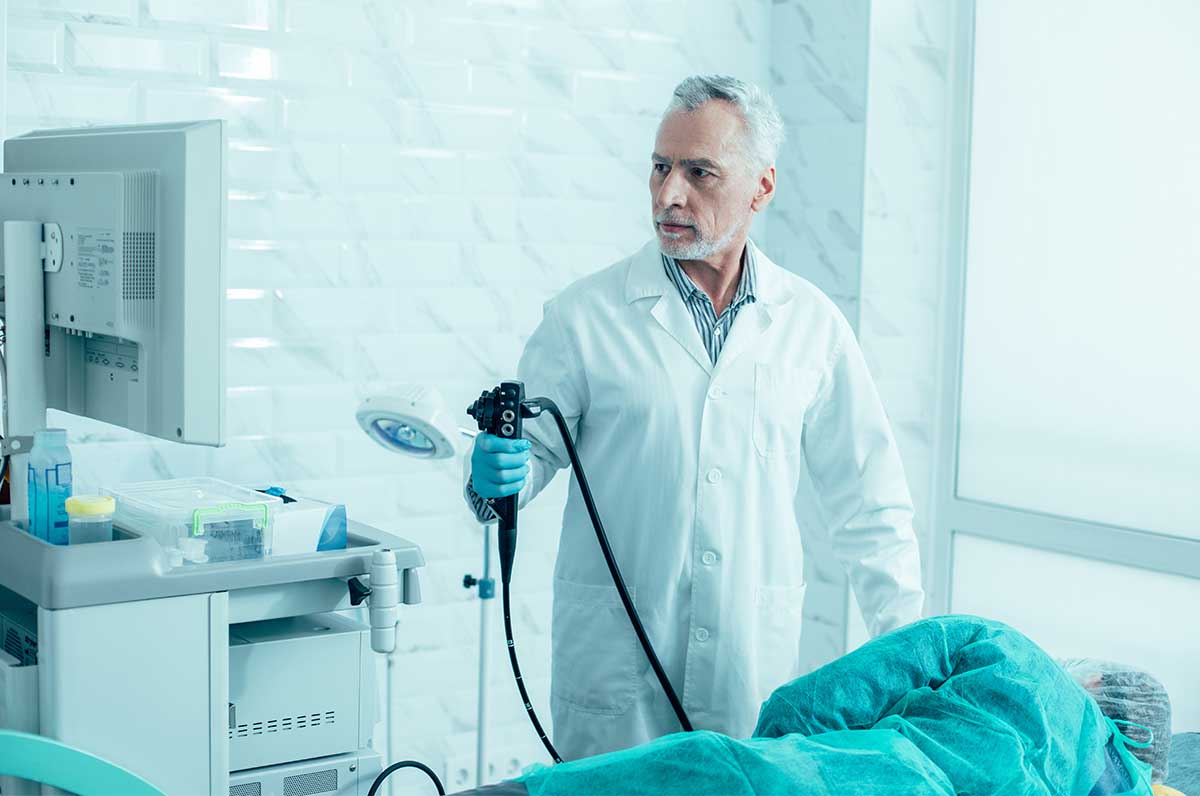What to Expect When Getting a Colonoscopy


A Q&A with Union Health Center Expert
Neil Pasco, MD
CEO, Chief Medical Officer
Union Health Center
We have invited Dr. Neil Pasco, Chief Medical Officer at Union Health Center, to help us answer the common questions that members ask about the colonoscopy screen for colon cancer.
Q: When should I get a colonoscopy?
A: As of May 2021, the United States Preventative Task Force recommends screening for colon cancer at 45 years of age. This is a change from the previous recommendation which stated that colon cancer screening should be done starting at 50 years of age. If you have a primary relative (e.g., mother, father, brother, sister, child etc.) with colon cancer who was diagnosed before the age of 50, the recommendations are for the screening to be done ten years prior of initial diagnosis. For instance, if my mother had colon cancer at 45, I should get my first screening done at 35 years of age.
Q: Why is getting a colonoscopy important?
A: Colon cancer is the fourth leading cause of cancer death in the United States, and as you look in social media and the news, colon cancer is being diagnosed in younger people. Chadwick Boseman, the famous actor who played Marvel’s Black Panther died of metastatic colon cancer at 43 years old. Having a colonoscopy is not only the gold standard screening tool for colon cancer screening, but a colonoscopy can also be curative. If the gastroenterologist (the doctor who performs colonoscopies) sees a polyp or other abnormality, most of the time, the doctor can remove the polyp before it becomes cancerous, thereby treating precancerous lesions.
Q: What is a colonoscopy and where do I get one?
A: A colonoscopy is a procedure where the patient is sedated (given medications to not feel and/or remember much) and a small camera the size of a pencil is inserted into the rectum to look in the colon to look for anything suspicious. Colonoscopies are traditionally done in office or at an ambulatory surgical center. Rarely do colonoscopies occur in the hospital.
Q: How do I prepare for a colonoscopy?
A: Preparation for a colonoscopy differs, but generally follows the same principle. Patients are told not to eat the night prior to the procedure and are given medications to help clean the colon. Most patients will continue to take their prescribed medicines (ask your provider to check to see if you should not take any medications on the day of the procedure) on the day of procedure. The most important part is avoiding eating from midnight the evening before the procedure until after directed by the gastroenterologist. Additionally, it is important that the patient avoids red liquids as often when looking in the colon, which can be mistaken for blood.
Q: Does it hurt? Will I be awake?
A: There might be some slight discomfort as with the procedure air is pumped into the colon to keep it open. Often patients will pass gas during and immediately thereafter the procedures. Most colonoscopies are performed with anesthesia we call conscious sedation. Patients are not put to sleep but will be kept awake while being given medications to numb the discomfort and make the patient feel drowsy during the procedure.
Q: What if they find something during my colonoscopy?
A: Depending on what is found during the colonoscopy will affect the outcome. If a polyp (a precancerous growth) is small and removable, the polyp will be removed, and a patient will be told to get another colonoscopy within three to five years depending on the size, type and numbers of polyp(s) found. In this case the patient has been saved from colon cancer! Other findings can include diverticulosis (small pouches in the intestine), ulcers and various types of blood vessel malformations. In these cases, it will be a discussion with the gastroenterologist and the patient on what will need to be done to address the situation. In the rare case a cancer is found, patients will have the area tattooed and a surgeon will discuss with a team of physicians on what the treatment plan is.
Q: How often will I need a colonoscopy?
A: For screening colonoscopies, it is recommended from 45 onwards (unless you have a close relative with colon cancer) that a patient receive a colonoscopy every ten years. If something is found, often patients will be directed to a repeat colonoscopy before ten years to make sure there is no cancerous growth.
